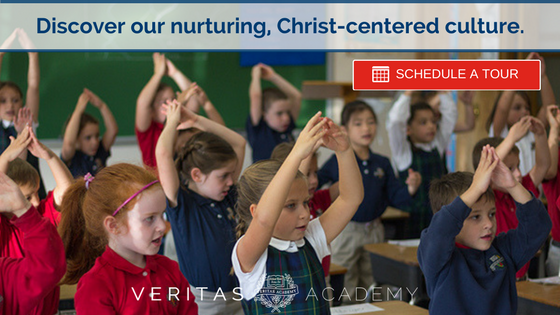In the Garden of Eden, God created Adam and Eve, male and female, in His image. He then rooted them in a place and called them to work. Being image bearers of God meant their work would be as co-creators with God and collaborators with each other. In the garden, they could use their imaginations and abilities to bring about flourishing in the world.
Yet, today, the profound meaning of being image bearers called to create is lost in a mire of ads and newsfeeds. The world screams at us to be consumers. With quick trips to the mall or quick taps on the cell phone, we can easily fulfill any need or desire with very little wait time and as cheaply as possible.
It takes imagination and intentionality to live as creative image-bearers of God and not consumers of the world.
As the 4th-6th grade drama club has been preparing to stage William Shakespeare’s The Tempest, I have been pondering how Shakespeare’s plays help us become “creators,” not “consumers.” It is through collaborating with Shakespeare that we put off consuming and take on the joy of creating.
When we become collaborators with this famous playwright, either as audience members or actors, we reject the easy consumption of entertainment for the rich rewards of delight in two distinct ways.
-
An audience collaborates with Shakespeare when they carefully listen.

Shakespeare’s plays are not always easy to understand. One must pay close attention to the words, hear the emotions in the actors’ voices, and see their expressions and body movements to gain greater understanding of the storyline. The fruit of intentional listening pays off, as one grows accustomed to the style and the vocabulary; as one cares for the characters; and as one desires resolution to the struggles and conflicts. Because Shakespeare pushes the audience to dig deeper, they appreciate language in ways they never did before.
Watching Shakespeare's plays reminds us of our shared humanity. His plays cover all that makes us human - the beauty of love, hope, and friendship, as well as the consequences of hatred, jealousy, and revenge. Shakespeare wrote in iambic pentameter, the "de dum, de dum, de dum, de dum, de dum" of our heartbeat. By doing this, Shakespeare moves his audience to sync up their hearts with the characters' hearts. Whether we know it or not, we cannot help but move into the rhythm of Shakespeare's deeply human stories.
-
Actors collaborate with Shakespeare when they prepare to stage one of his plays.
This work includes reading through the scripts, memorizing lines, developing characters, and working through motivations. As a cast comes together on stage by blocking scenes, handling props, and wearing costumes, their work becomes a new piece of art. Despite how old Shakespeare’s plays are, actors continue to find new ways to express familiar lines. From Laurence Olivier’s recitation to Benedict Cumberbatch’s interpretation, Hamlet’s famous line “To be or not to be, that is the question” still remains heartbreaking.

Shakespeare’s plays are not just for veterans of the stage. Our 4th-6th grade Drama Club has collaborated with Shakespeare by working with a trimmed-down version of The Tempest. The actors putting on this play have learned the actual of language of Shakespeare. With different parts removed, this staged production will be 60 minutes, not three hours.
Our cast has many examples of creative collaborators. One 6th actor, Jacob, who plays Caliban the “monster,” has collaborated with Shakespeare by thinking about and practicing his voice and walk, making this sad character come to life. Nia, another 6th grader, has memorized the most lines in the play and has mastered walking with a flowing cape. Her portrayal of Prospera has motivated the whole cast to work hard.
And not just these actors, but all the cast has worked at learning their lines, practicing their blocking, and encouraging each other to do well. They have collaborated with our director, Miss Groff, and each other, to stage this Shakespeare play. Everyone has used their imaginations and their abilities. Some have enjoyed yelling, “Bestir yourself! Bestir!” while others have enjoyed dancing on stage with floating blue fabric or crying out “Alack! For mercy!” with arms extended wide.
Are you ready to be at once entertained, enriched, and edified as you collaborate with Shakespeare and our talented students? Then come out this Friday night, February 3, to Veritas Academy to see The Tempest (seating begins at 6:30 pm, with the play starting at 7 pm). We hope you enjoy our creative, collaborative work with William Shakespeare.
(This is a “pay-what-you-will” event.)






